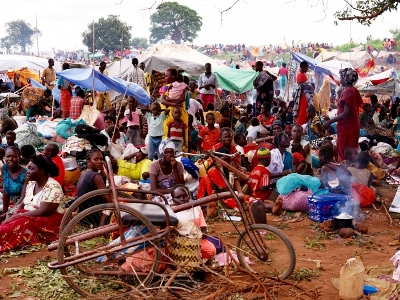IOM, USAID improve access to clean water, safe sanitation in S. Sudan
December 21, 2017 (JUBA) – The US Agency for International Development (USAID) and the International Organization for Migration, have launched a large-scale project to provide equitable access to water, sanitation, and hygiene (WASH) services for people affected by the crisis in South Sudan while strengthening prevention of gender-based violence (GBV).

WASH-related diseases, such as cholera, are widespread and often linked to limited infrastructure and access to health care, population displacement, food insecurity, and poor hygiene practices.
GBV is endemic in South Sudan, where years of conflict have increased the vulnerability of women and girls. Many of these abuses occur when women and girls undertake survival activities, such as fetching water.
This new USAID programme aims to address these lifesaving issues by working directly with communities to improve access, change behavior, and increase the well-being, not only of women and girls, but all members of the community.
“USAID serves vulnerable communities with improved water, sanitation and hygiene services to reduce morbidity and mortality associated with poor access to these essential services,” said USAID Mission Director Jeff Bakken.
“USAID is also committed to mitigate gender-based violence linked to access to safe water and sanitation facilities,” added Bakken.
Women and girls in South Sudan are typically responsible for collecting water for their families. When forced to walk long distances to access functioning boreholes, they are often put at great risk of GBV. Improving the quality and management of boreholes and drilling new ones to increase proximity to communities can greatly enhance the safety of women and children.
“This collaboration with USAID can also address harmful social norms such as gender inequality by encouraging women’s meaningful participation in managing resources, such as water,” explained Antonio Torres, IOM South Sudan WASH Programme Coordinator.
Similarly, by incorporating more women in leadership structures, such as water management committees, WASH programming will encourage processes that take into consideration the concerns of women and vulnerable individuals while also empowering the voices of women in their communities.
IOM teams have already deployed to Mayom and Kapoeta to assess needs and opportunities for integrated WASH and GBV prevention responses. In North, South, and East Kapoeta counties, which saw more than 3,000 cases of cholera in 2017 – IOM identified more than 40 locations for WASH programmes that can mitigate future outbreaks of diseases and provide opportunities to partner with local non-governmental organizations to promote continuity of WASH services and prevention of GBV.
(ST)
